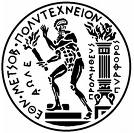POSSUM: Policy Scenarios for Sustainable Mobility

http://cordis.europa.eu/transport/src/possum.htm
FOURTH FRAMEWORK PROGRAMME
PROJECT FUNDED BY THE EC UNDER THE TRANSPORT RTD PROGRAMME
Duration: 1996-1999
Scientific Responsible: Prof. Maria Giaoutzi (E-mail: giaoutsi@central.ntua.gr)
The Project Objectives
The POSSUM project has successfully developed a new methodology for investigating policy scenario building at the European Level for the period 1995-2020. Innovative methods based on backcasting have been used to establish targets for economic, development and environmental objectives set out in the EU Common Transport Policy. These targets have been used as a framework for the construction of Images of the Future. These Images combine contextual elements (outside the scenario building process) and strategic elements (included in the scenario building process) to present visions of the future (2020). The contextual elements cover the expansion of the EU, the key roles that different decision makers play and levels of cohesiveness or competition within Europe. The two main strategic elements are technological innovation and decoupling (the reduction in the transport intensity of the economy).
Comprehensive lists of policy measures have been classified according to type (market-based, regulation, lifestyle-orientated and public service). These measures have been packaged according to particular themes. The innovative packaging process permits the mixing of different policy measures so that the targets set can be achieved. It moves beyond the expectation that individual policies will achieve sustainable mobility.
The main task of the POSSUM consortium has been to construct scenarios for achieving the objectives of sustainable mobility and to assist the Commission in future decisions about the Common Transport Policy and the development of the Trans-European Networks. The overriding aim of the study is to find ways ‘to facilitate movements of persons and goods in agreement with a strategy of sustainable development. The concept includes mobility levels, but also the technical systems required to enable mobility’.
Partners
1. University College London, (Great Britain) (Project Leader)
2. Free University Amsterdam, (The Netherlands)
3. National Technical University of Athens, (Greece)
4. Institute for Regional Studies in Europe, (EURES), (Germany)
5. Environmental Strategies Research Group (Sweden)
6. Technical Research Centre of Finland, (VTT), (Finland)
7. Warsaw University of Technology (Poland)
8. Tel Aviv University, (Israel)
(Supervised by Prof. Maria Giaoutzi)
1996 - Stratigea Anastasia, "The Impacts of ICTs on Spatial Restructuring", NTUA.
2005 - Oludolapo O. Akinyosoye - Gbonda , "SYDEPETR - SYstem to support DEcision for the PETRoleum mining sector: The Niger Delta Region", NTUA.
2007 - Andreatou Aggeliki, "Decision Support Systems for Sustainable Development", NTUA.
2008 - Papakonstantinou Dimitrios, "Closed ICTs Networks in the Management of Tourism Product for Sustainable Development", NTUA.
2011 - Grammatikogiannis Elias, "Decision Making Systems for Public Participation in Regional Planning", NTUA.
EUROSIL
SMARTS
EPRI-WATCH
PRAXIS
ULYSSES
POSSUM
TILSEPE
TILEMATT
BATT
SIRIUS
EURONETT
EVA
Missing Networks In Europe, ERTI
EnvironmentalL Consequences Or Market And Intervation Failures In Transport Policy, OECD
A Strategic Information System And Planning Model For Marine Park Management: The Case Of Northen Sporades-MEDSPA
Integrated Development Plan for the Kastelli -Heraklion-Crete Region
The implementation of the first phase of the tramway system of Athens, OASA
Strategic Guidelines for Vocational Training in Potential ‘in Decline’ Regions in Greece-I
Strategic Guidelines for Vocational Training in Potential in Decline Regions in Greece-II
A Pilot Digital System To Upgrade Current Support Mechanisms For Improving Clinical Health Services
Requirements Specification and Tender Evaluation of an Information System for A Project Funded by the North Aegean Region Fund, Titled “Oinousses Telematic Center – Nautical Center of Documentation”
Development of Operational Optimization Software for Forest Fire Management
